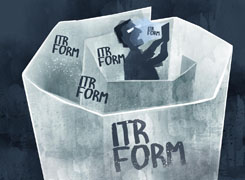Ramalingam Kalirajan |8319 Answers |Ask -Follow
Mutual Funds, Financial Planning Expert - Answered on May 28, 2024
He has an MBA in finance from the University of Madras and is a certified financial planner.
He is the director and chief financial planner at Holistic Investment, a Chennai-based firm that offers financial planning and wealth management advice.... more

SIR, I AM A BUSINESSMAN WITH ASSETS IN THE FORM OF LAND AND HOUSES EQUIVALENT TO Rs 15 CR I M 55 YEAR OLD WITH ONE DAUGHTER WHOSE MARRIAGE IS FIXED IN DEC 24 , MY WIFE IS ALSO A TEACHER AND HAS A FD OF 1CR MY CURRENT MONTHLY EXPENSES ARE 1.5 - 2 LAC PER MONTH NO HEALTH INSURANCE AND LIFE INSURANCE IS 1 CR WHICH WILL BE A GOOD AMOUNT IN WHICH WILL GIVE ME AND MY WIFE SAME OR BETTER LIFE STYLE IN ANOTHER 20 YEARS CONSIDERING INFLATION AND A SAFE INVESTMENT
Thank you for sharing your financial details. You have a solid foundation with significant assets and a fixed deposit. Let’s explore a strategy to ensure you and your wife maintain or improve your lifestyle for the next 20 years, considering inflation and safe investments.
1. Evaluating Your Financial Situation
You have assets worth Rs 15 crore in land and houses. Your wife has a fixed deposit of Rs 1 crore. Your monthly expenses are Rs 1.5 to 2 lakh.
2. Setting Financial Goals
Your goals include maintaining your lifestyle, funding your daughter’s marriage, and ensuring a comfortable retirement.
3. Importance of Health Insurance
First, consider getting comprehensive health insurance for you and your wife. Medical expenses can erode savings, so it’s crucial to have adequate coverage.
4. Secure Investment Options
For safe investments, consider the following:
a. Fixed Deposits and Bonds
Continue with fixed deposits for stable returns. Invest in high-quality bonds for additional safety and fixed income.
b. Senior Citizens' Savings Scheme (SCSS)
SCSS offers good interest rates and is a safe investment option for retirees.
c. Debt Mutual Funds
Invest in debt mutual funds for relatively safe returns. They are less volatile and provide better returns than traditional fixed deposits over the long term.
5. Systematic Withdrawal Plans (SWPs)
Invest a portion in mutual funds and opt for SWPs. This provides regular income and is tax-efficient.
6. Diversified Portfolio
Create a diversified portfolio balancing safety and growth. Allocate assets across fixed deposits, bonds, debt mutual funds, and some equity exposure for growth.
7. Inflation Consideration
Factor in inflation when planning. Your investments should grow faster than the inflation rate to maintain purchasing power.
8. Estate Planning
Ensure proper estate planning. Create a will and consider setting up a trust for seamless asset transfer and management.
Conclusion
With careful planning and prudent investments, you can maintain your lifestyle and ensure financial security. Consulting a Certified Financial Planner can help tailor a plan to your specific needs and goals.
Best Regards,
K. Ramalingam, MBA, CFP,
Chief Financial Planner,
www.holisticinvestment.in
You may like to see similar questions and answers below
Ramalingam Kalirajan |8319 Answers |Ask -Follow
Mutual Funds, Financial Planning Expert - Answered on Jun 11, 2024
Ramalingam Kalirajan |8319 Answers |Ask -Follow
Mutual Funds, Financial Planning Expert - Answered on Aug 14, 2024
Ramalingam Kalirajan |8319 Answers |Ask -Follow
Mutual Funds, Financial Planning Expert - Answered on Nov 26, 2024
Ramalingam Kalirajan |8319 Answers |Ask -Follow
Mutual Funds, Financial Planning Expert - Answered on Jan 02, 2025
Radheshyam Zanwar |1599 Answers |Ask -Follow
MHT-CET, IIT-JEE, NEET-UG Expert - Answered on May 05, 2025
Radheshyam Zanwar |1599 Answers |Ask -Follow
MHT-CET, IIT-JEE, NEET-UG Expert - Answered on May 05, 2025

EEE (Electrical and Electronics Engineering) at IIIT Gwalior (ABV-IIITM) can be a decent choice. But if you're strictly interested in core electrical engineering, other colleges (like NITs) might be a better option because not many EEE-core companies visit the campus in comparison to CS/IT branches. Finally, if your interest is strictly in core EEE, IIIT Gwalior might not offer as many labs or core recruiters as older NITs or IITs with stronger electrical departments.
Follow me if you like the reply. Thanks
Radheshyam
If not followed, pl follow and like. Thanks
Radheshyam Zanwar |1599 Answers |Ask -Follow
MHT-CET, IIT-JEE, NEET-UG Expert - Answered on May 05, 2025
Prof Suvasish Mukhopadhyay |612 Answers |Ask -Follow
Career Counsellor - Answered on May 05, 2025
Prof Suvasish Mukhopadhyay |612 Answers |Ask -Follow
Career Counsellor - Answered on May 05, 2025
Mihir Tanna |1052 Answers |Ask -Follow
Tax Expert - Answered on May 05, 2025
Samraat Jadhav |2269 Answers |Ask -Follow
Stock Market Expert - Answered on May 05, 2025
Samraat Jadhav |2269 Answers |Ask -Follow
Stock Market Expert - Answered on May 05, 2025
Samraat Jadhav |2269 Answers |Ask -Follow
Stock Market Expert - Answered on May 05, 2025
Ramalingam Kalirajan |8319 Answers |Ask -Follow
Mutual Funds, Financial Planning Expert - Answered on May 05, 2025
























